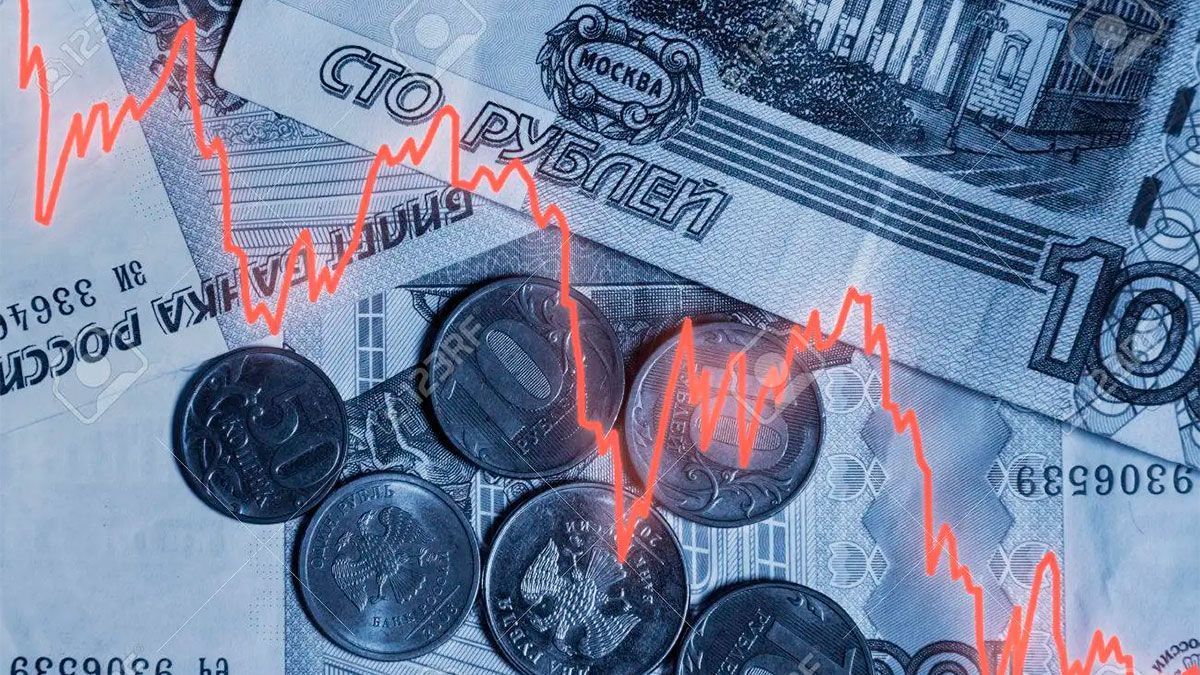Joe Biden’s administration is seeking consensus with its European allies to move forward with the ban, but if it does not find support, it would move forward on its own, according to the Bloomberg agency. Europe is more skeptical about enforcing an embargo due to its greater reliance on Russian oil and gas.
The German Foreign Minister, Annalena Barbock, said yesterday in an interview with the state channel ZDF, that sanctions on oil “would be useless if in three weeks it is discovered that there are only two days of electricity left in Germany and that sanctions must be reversed.” In that sense, Germany currently imports 55% of its gas, and 42% of its oil and coal from Russia. A sanction on oil would cut off one of the main sources of financing for Russia, which paradoxically benefits from the higher prices of crude oil that began to rise sharply with the invasion. A measure of this nature would add to the long list of economic sanctions that Russia received in recent weeks and the withdrawal of several Western multinationals from its territory.
Yesterday, Vladimir Putin made the decision to prevent Russia from defaulting on capital controls. Through a decree, he established that Russian companies will be able to pay foreign creditors in rubles.
The decree establishes temporary rules for sovereign and corporate debtors to make payments to creditors of “countries engaged in hostile activities” against Russia, its companies and citizens. The government drew up a list of countries hostile to Russia, including Australia, Canada, the EU, Iceland, Japan, New Zealand, Taiwan, Norway, Singapore, South Korea, Switzerland, the United Kingdom, the United States and Ukraine itself. among others.
Russian corporate bonds denominated in foreign currencies have tumbled in recent days as investors weighed the impact of sanctions imposed on the country following the invasion of Ukraine. The Russian government responded to the sanctions by slashing access to foreign currencies, which could restrict bondholders’ ability to receive interest and principal payments.
Separately, clearinghouses Clearstream and Euroclear stopped accepting the ruble as a settlement currency and excluded all securities issued by Russian entities from all three-party transactions except for a traditional channel used to make payments to bondholders.
In a separate announcement on Sunday, Russia’s central bank said it will temporarily ease reporting requirements for Russian lenders in an effort to shield them from sanctions pressure. Commercial banks will no longer have to publish their monthly accounts on their websites, although they will still have to send them to the central bank and can then disclose them to counterparties, the regulator said. According to Saturday’s decree on servicing foreign debt, payments will be considered executed if they are made in rubles at the official rate of the central bank.
Debtors can ask a Russian bank to create a special ruble-denominated “C” account in the name of foreign creditors for settlement, while local creditors will receive payment through Russian deposits. The rule applies to amounts above 10 million rubles ($81,900) per month.
Difficulties in turning payments
On March 2, Russia paid a coupon of 11.2 billion rubles for 339 billion rubles in bonds known as OFZ due in February 2024. Although the Russian National Settlement Depository received the money, foreign bondholders did not they received the payment due to the central bank order prohibiting foreign payments. This triggered a debate as to whether or not it constituted a breach.
While some of Russia’s foreign sovereign bonds allow payments in rubles, the new measure could still pose a problem for holders of credit-default swaps, which are used as insurance against default.
This is because, given capital controls in Russia and sanctions, paying in rubles “may make these bonds out of CDS scope as ‘bonds’ and ‘deliverable bonds,'” the JPMorgan strategists wrote. Chase & Co. led by Trang Nguyen in a note to investors on Friday. Russia has $117 million worth of coupon dollar bonds due March 16 that do not have the option to be paid in rubles, JPM strategists said. The CDS covers gross Russian debt of $41 billion, according to the Depository Trust & Clearing Corp.
Firms with upcoming dollar-denominated note maturities include state oil producer Rosneft PJSC, whose $2bn bond is due on Sunday, and state-controlled energy giant Gazprom PJSC, which has a $2bn note. s1,300 million maturing this Monday. The latter was already in the process of settling that payment, Bloomberg previously reported.
Source: Ambito
David William is a talented author who has made a name for himself in the world of writing. He is a professional author who writes on a wide range of topics, from general interest to opinion news. David is currently working as a writer at 24 hours worlds where he brings his unique perspective and in-depth research to his articles, making them both informative and engaging.




